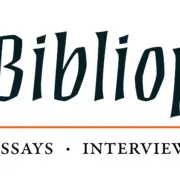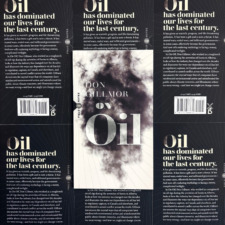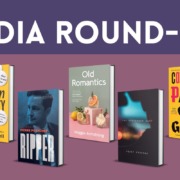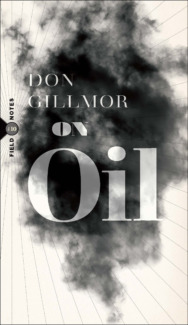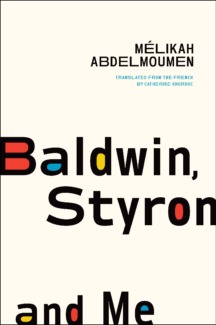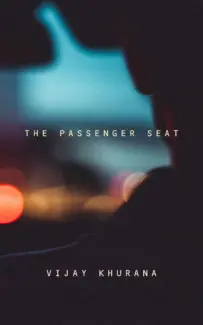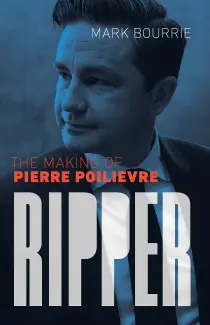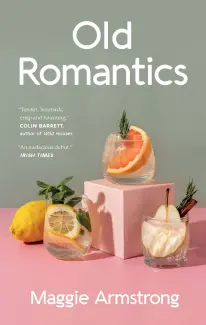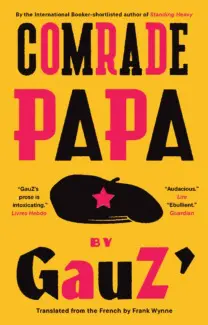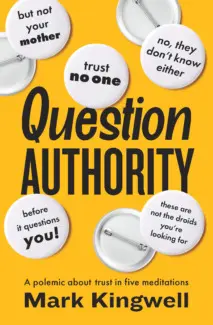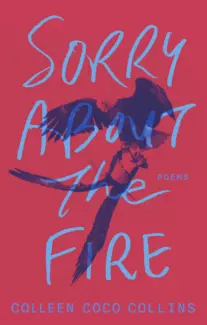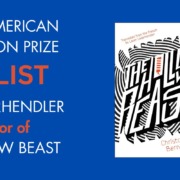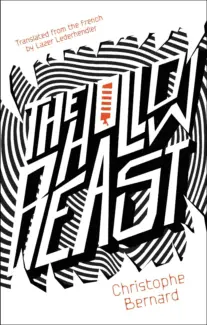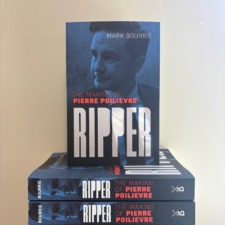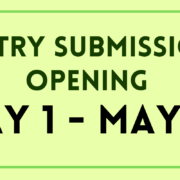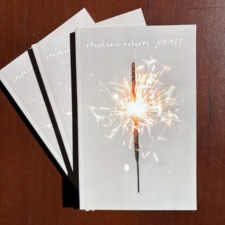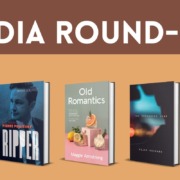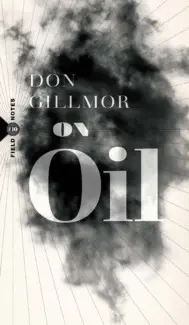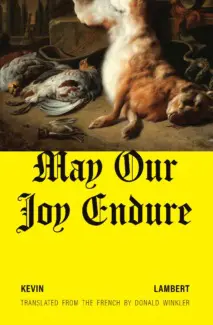The Bibliophile: The ghost in the machine
Want to get new excerpts, musings, and more from The Bibliophile right away? Sign up for our weekly online newsletter here!
***
It surprised me that the most riveting book I’ve read this year is on a topic I knew nothing about and didn’t think I would care to know much about anyway. But Don Gillmor hooked me. That won’t surprise anyone who has read him before. In On Oil, Gillmor, a journalist and former roughneck, takes us through the rise and fall of the oil industry. He had a front row seat to Alberta’s oil boom in the ’70s while working on the oil rigs and he uses that perspective to show how it transformed the province and the wide-ranging influence oil has had across the world. It has given some countries immense wealth and power. It has also corrupted governments, started wars, and worsened our environment.
Reading this book I learned that one of the first oil companies was started by a devout Baptist and some of the biggest oil companies were run by Christian evangelicals, which aided in building the mythology of oil as the key to a kingdom on earth. And now, as Gillmor says, “we find ourselves in a landscape that looks increasingly like the Book of Revelation. ‘A third of the earth was burnt up, and a third of the trees were burnt up, and all green grass was burnt up.’”
Please enjoy this short excerpt from On Oil, which will be released on April 22.
Ahmed Abdalla,
Publicist
***
Babylon
In boardrooms in Houston, Calgary, Kuwait, and a dozen other oil capitals, and on the floor of the New York and Chicago Mercantile Exchanges, oil was a global chess game where commodity futures were sold and bartered, oil shipped and traded. Millions of barrels lurched across the globe each day, traders hunched over streaming charts, puzzling over contracts for difference. Over the years, oil has won wars, started others, been a force for nationalism and colonization, and provided a stubborn mythology. It is the one true global religion. A glimpse of oil’s reach can be seen in America’s oil industry. Under Joe Biden, it produced 13.3 million barrels per day, enough to meet the US’s own needs. But in 2023 it imported 8.51 million barrels per day (bpd) from dozens of countries, and exported 10.15 million bpd to 173 countries. The oil network envelops the world in a complex web of shipping and refining capacity and capability, depending on cost-effectiveness and the grade of oil. Part of this is economic; it can be cheaper to import from countries with lower labour and capital costs and fewer environmental regulations. And part of it is chemistry; the heavy, sour (high sulphur content) oil that the US was importing from Venezuela and Mexico when it still needed to import oil requires a specific kind of refinery. Some of the refineries on the Gulf coast are equipped to process that oil (along with Canadian bitumen), as opposed to the light, sweet oil that Texas produces. Refineries take years to build and are expensive—between US$5 and 15 billion. With the exception of a small North Dakota refinery that came online in 2020, no US refineries have been built since 1976. Past the economics and chemistry, there are the geopolitics. Countries (Russia, Saudi Arabia, the US) sell oil at advantageous prices to other countries to gain influence and status. It is the world’s most pervasive diplomatic tool.
Canada’s oil landscape is equally byzantine. Canadian pipelines tend to run south rather than east, so Ontario and Quebec get their oil from an evolving patchwork of sources that shifts depending on economics and politics. Since 1988, eastern Canada has imported more than $500 billion in foreign oil, coming from the US, Venezuela, Saudi Arabia, Algeria, Nigeria, Norway, and others. The landscape can shift quickly. In 2012, Quebec got 92 percent of its oil from Kazakhstan, Angola, and Algeria, and just 1 percent from Alberta. Five years later, it was getting 44 percent of its oil from Alberta, the result of Enbridge’s Line 9 pipeline.
It binds us all. Oil has a pulse, it evolves and migrates, transforming cities and governments, entire countries. It fuelled economic growth and triggered recessions and gave us the romance of the open road. But at its source, in Texas and Oklahoma and Louisiana and in camps in the Arctic, and outside Medicine Hat, it was men trudging onto the drilling floor, labouring in the heat or cold amid a symphony of engine noise, wrestling with drill pipe, spinning chains, tongs and slips, the kelly hose bobbing above them as they punched another hole in the earth. Even for us, oil remained an abstraction. I never saw it; there were no dramatic gushers, black oil spewing from the earth, coating everything. It powered our cars and homes and was used in the manufacture of a thousand products, from plastics to fertilizers to Aspirin. It powered our lives: We are Hydrocarbon Man, Homo Oleum. Yet it remains unseen, the ghost in the machine.
***
After graduating from university, I worked on an oil rig for a hundred straight days, with what was probably the oldest crew in the oil patch, weathered, gnarled men in their late sixties, one in his seventies, ancient for rig work, their lives a country and western song. Pete, the wobbly seventy-two-year-old derrickman, came home to find his wife gone, along with all the furniture, appliances, and curtains. There was a note on the floor: “Your dinner’s in the oven.” There was no oven. The driller was a ropy-muscled troll who had worked on the killing floor of a meat-packing plant but quit finally, saying it took too much of you, all that death. My fellow roughneck was a farmer whose modest crop had been lost to drought. He was in his late sixties, with a deeply lined face, a face that could hold a spring rain, as my grandmother might have said. Between connections he would roll a cigarette and walk to the edge of the lease and smoke and stare at the horizon.
I went up in the derrick when Pete was drunk or too hungover to climb the thirty metres onto his perch. We were south of Calgary and I was ten storeys off the ground, a view of the Rockies to the west and limitless prairie to the east, farms and ranches laid out like a Mondrian painting, a glorious solitude.
With my first paycheque I bought a plane ticket to Europe, then counted the days like a convict. Four months later, I was sitting on a beach on the Greek island of Crete, blobs of sticky oil dotting the sand around me. A tanker carrying crude oil from Libya had run aground off the south coast of Crete and here was the residue. Only two months earlier, the Amoco Cadiz had split apart off the Brittany coast in France, spilling 230,000 tonnes of oil, at that point the largest spill in history. Twenty thousand birds were killed and millions of sea creatures. Two months after the spill, six thousand French soldiers were still cleaning up the coastline.
The 1970s was a banner decade for oil tanker spills. More happened in that decade than any decade before or since. It was peak spill, with an alarming 788 of them (by contrast, the 2010s saw 63 spills). Millions of tonnes spilled into the seas. The world was awash in oil.
***
In good publicity news:
- Don Gillmor, author of On Oil, was interviewed on TVO’s The Agenda, and wrote the article “Why Trump Needs Canadian Oil” for Maclean’s.
- Ripper was mentioned in The Hill Times: “A bracing reminder of some of the reputations Poilievre has ruined, the malicious fictions he has promoted, [and] the tiresome slogans he stitches into every utterance.” Mark Bourrie was also featured in Vancouver CityNews’s Bookshelf.
- Question Authority by Mark Kingwell was reviewed in the New York Journal of Books: “A master of words . . . [Kingwell] writes with deep affection and hope for humanity and openly shares his darkest and brightest moments along life’s bumpy road.”
- A few of our titles appear in the Literary Review of Canada’s May 2025 issue:
- Review of On Book Banning by Ira Wells: “Persuasively explains how book banning reduces and devalues art and how it constitutes an attack on intellectual autonomy and on ‘your right to determine the future of your own mind.’”
- Review of Baldwin, Styron, and Me by Mélikah Abdelmoumen (trans. Catherine Khordoc): “Demonstrates the good faith conversations being held within a cultural scene that is both local and transnational in its outlook.”
- Review of UNMET by stephanie roberts: “With a resolute inward stare, Roberts reveals the cumulative nature of life.”

